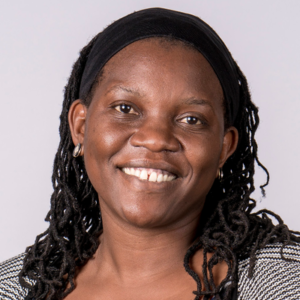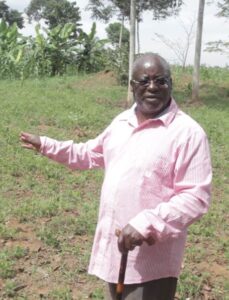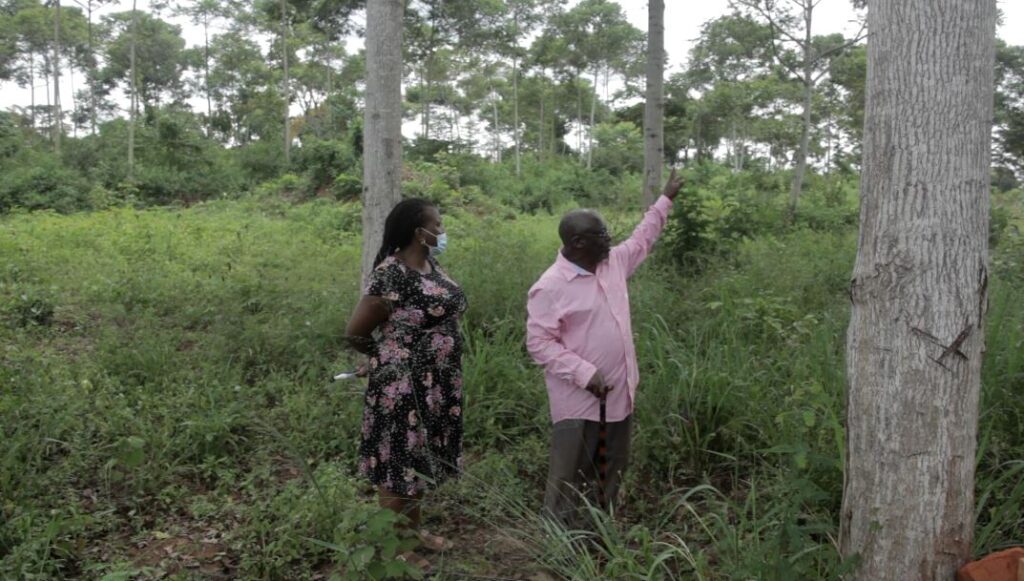Achieving Satisfaction in Retirement

Ms. Lydia Mirembe
Manager Corporate and Public Affairs

In September 2021, social media was taken by storm when Professor Oweyegha-Afunaduula unleashed a rant on Facebook, complaining that he had not received his full benefits 12 years since he retired. The rant went viral, arousing an outpouring of public sympathy. The Uganda Retirement Benefits Regulatory Authority (URBRA) picked interest in the matter and followed up with his former employer. A few days later, the Professor got paid – a percentage of his benefits. A portion remains unpaid, but he is optimistic that with URBRA’s intervention, it won’t be long.
The delayed payment of his benefits notwithstanding, the zoology professor has managed to get by since he retired in 2009 – that is because he managed to put up his basic requirements when he was still energetic and employed. “I started planning for retirement as soon as I started working in 1972,” he recalls. By the time I decided to return to my ancestral home in Nawaka, I had already planted trees, I had bought construction materials for my house and I wanted to be as far away from Kampala as I could possibly be.”
Professor’s retirement home in Nawaka, is tucked away in the green plains of Luuka District. The long, bumpy road to his village is dotted with rice paddies and sugarcane plantations, which give way to thriving planted forests. On the day we travelled there, it was scorching hot, but on arrival to his home, we were greeted by a cool breeze, breathed by the wide variety of trees in his compound. His home sits on a twelve-acre piece of land. There, he has planted a forest, fruit trees, coffee, and bananas. He also has an apiary project and rears goats and chickens. When he got part of his benefits, he added a cow (called Gabon), and intends to revive his piggery project. For security purposes, he keeps a dog called Giles.
The 72-year-old professor could have chosen a different life if he had wanted. While teaching at Makerere University where he spent 18 years, he lived in staff accommodation. It was high standard with all amenities available. But for him, Nawaka was always calling.

“Many people get carried away when they are given houses at work, they forget that they are temporary perks. It is very important for people to return to their traditional home. It helps to reconnect your children to their roots; it also helps to bring development to your home area,” he reasons.
One wonders how a professor with international exposure could easily adjust to life in a rural district. “God prepared me for this,” he says. When he graduated from university in 1972, Afunaduula joined the East African Community and worked as a zoologist in different national parks in Kenya and Tanzania. He recalls a time when he was working in Tsavo National Park, famous for its man-eating lions. The lions would come so close to their house, but never hurt them. In Tanzania, he worked in Serengeti national park where it would unbearably hot – but he lived through it all. “God was preparing me for this life in a rural setting. You cannot work in game parks and fail to live in the village,” he says with satisfaction.
Throughout his working life, Afunaduula never lost sight of the reality of retirement. “When we are young, we tend to think that we will remain young forever. There’s a tendency to be wasteful and fail to save,” he says. Luckily for him, he realized early that he needed to save money. This was mainly dictated by his personal circumstances. He started a family quite early. When he was in Senior four vacation, he sired his first child who was later followed by a set of twins. As a young man with a young family, he took his responsibilities very seriously. He had to save money to educate all his children and also look after his ailing parents. He knew the value of saving right from the onset. “If I wasn’t organized I would have been lost,” he reminisces.
Even amidst the pressing family responsibilities, Afunaduula didn’t waiver on his retirement dreams. He dreamt of planting a forest where people would go for tourism and birdwatching; he dreamt of building a dispensary in his area – to ease access to health care; he dreamt of establishing a community water supply system – after seeing his polygamous father struggling to fetch water from a well when all his wives had left… “I thought I was going to live a good life. I wanted to be a good example to village mates and be useful to the community. I planned that I would not depend on my children for retirement. However, my retirement benefits came in small bits! Up to now I’m still waiting for payment to be completed. We need to get that money in bulk to be able to use it well.”
But there’s the argument that the employers’ and employees’ contributions are not enough to sustain retirees, so how was the professor hoping to fund all those dreams?
“I lowered my standards and expectations. If you are retiring to the village, you have to adjust to the new standards of living. If you keep your standards up there, you won’t fit in. You have to lower your expectations without losing them because they help you set targets. You can lower your standards without necessarily losing respectability and integrity. If your expectations are too high you will be overcrowded and overwhelmed. You don’t have to be an embarrassment to your those who know you. That is why I planted food and fruits; I set up a rainwater harvesting system; I started a piggery project; I planted coffee…. I can enjoy a decent life without spending too much money,” he explains.
The other tip he gives, is to stay connected with friends. They always come in to support you. For example, professor’s friends helped him to clear the bill when he had an operation to remove cataracts in his eyes.
Afunaduula also advises retirees to remain connected to the world saying, “watch TV, read the newspapers, write and keep connected through social media platforms. Participate in community activities, and support other retirees who may not be blessed like you. Rediscover your spirituality and reconnect with God.” While he doesn’t go to church because of Covid19 and the general mistrust around churches, professor reads the bible. At some point he even forayed into preaching! “God is central to my retirement. Even though I am a scientist, I believe in God. Science without God is not good.”
He urges people to tap into the wisdom of retirees. “People may be retired but they are not expired. Science shows that at age 60, the brain gets bigger and that is the right time to tap into it, but here in Uganda that is the age at which we discard people,” he laments, recommending that there should be mechanisms and platforms to enable retirees to pursue their interests and continue contributing to the general social good. He further recommends that institutions should be involved in the pre-retirement and post-retirement agenda. “Give pre-retirement advice before people leave employment and support them to pursue their interest while in retirement,” he advises.
One of the things that bothers Afunaduula, is the lack of respect for the elderly in society and the total failure to appreciate the challenges unique to the elderly. This particularly irks him when the people who handle pensioners and retirees treat them with disdain. “The people working for retirement benefits scheme should take it as an opportunity to serve and to develop new skills to serve a unique clientele,” he says, recalling the experience of a friend who travelled from Arua to Kampala to follow up his pension payment. “The officials at the scheme told him to return the next day without even thinking where he would spend the night!” He also decries the myriad unrealistic demands which are placed on people seeking to access their benefits.
“Some old people have lost their sight, others have suffered stroke and lost the ability to write or even to speak, yet people at the scheme insist on seeing the original signature. They should know that when you grow old you are not as efficient as you used to be. Sometimes you can’t even see the right place to put your signature. Make the process simpler for them,” he says.
Reflecting on all these things, Afunaduula was forced to pen the Facebook rant. He was crying out for himself and many others like him. Indeed, when URBRA intervened, government set aside some money and Makerere paid many of them – including professor’s wife. But he says money coming in bits is stopping many retirees from achieving their dreams. He recommends that URBRA should go out countrywide and help those who haven’t been paid.
“It is good that URBRA came in and we were paid. URBRA should not be a sitting organization, it should be in the field, visiting different institutions and finding out why they pay their retirees on time. One should get his or her pension on the day of retirement. When they write a letter a year before to warn you of your impending retirement, that is the time they should start processing payment. Old people should not be made to beg for their money.”



